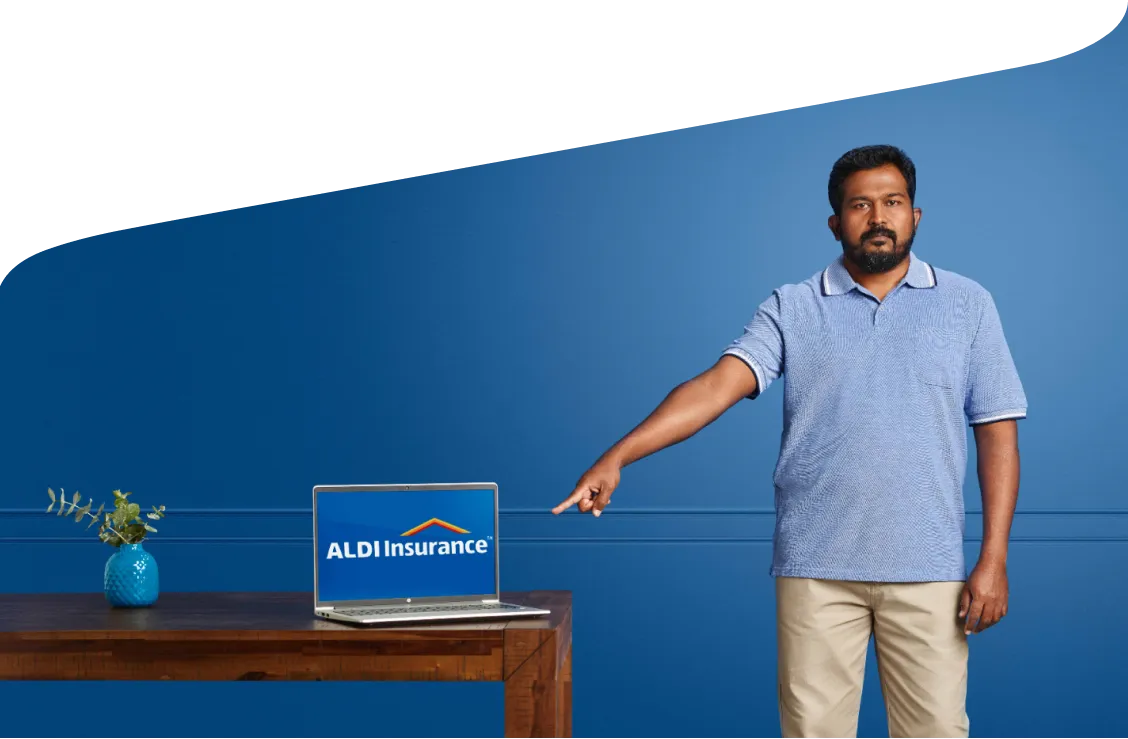
Cover for landlords as tenants come and go
ALDI Insurance covers your investment property for the essentials, and helps you mitigate your financial risk. We’ll cover your house, even if someone else calls it a home.

Inclusions that make sense
Natural disaster damage
If your property is destroyed by storm, fire or flood, we’ll cover reconstruction and replace your eligible contents up to the sum insured.
Accidental damage by tenant
If your tenant accidentally damages your property, get help with repair costs up to 15% of your sum insured.
Loss of rent
When tenants have to evacuate as a result of an insured event, get net rental income for up to 12 months, up to a total of 10% of sum insured.
Malicious damage or theft by tenant
Get covered for loss or malicious damage to your property and contents for up to 15% of your sum insured.
Rent default
When your tenant is in default, we pay the net rental income up to $5k after bond entitlement.
Water damage
If your home and things are damaged by water, you’re covered for the clean up and repair costs.
Fixtures and fittings
Cover for loss or damage to floors, blinds and curtains up to 5% of your building sum insured or up to the contents sum insured.
New for old
Cover for the replacement of eligible contents at the item’s value today, not its depreciated value.
Demolition and removal of debris
On top of your sum insured, we’ll help with the costs of demolition and design fees.
These are some of the highlights and benefits of our cover options for landlords. Please refer to the PDS for details on insured events that can impact claims, as well as other exclusions and limitations.
Frequently asked questions
Landlord insurance can cover both the building and the contents of your investment property in the case that they need repair, rebuilding, or replacement after an insured event (a fancy way of saying something happened and then you need to make a claim). This includes protection from unpredictable weather and the impacts of cyclones, floods, storms, and bushfires. Landlord insurance can also protect you against things like theft or damage by a tenant, lost rent, and legal liability.
There are several differences between landlord and homeowners insurance, the main difference being that landlord insurance provides protection for an investment property you are renting out and not living in, whilst homeowners insurance is for your primary residence - the place you live in and call home.
Homeowners insurance covers the home and contents of the house you permanently live in (commonly called a “dwelling”), the things (contents) in your house, and your legal liability related to the property. It does not cover the risks that come with having a tenant living at your investment property, such as tenant damage and rent default, making landlord insurance relevant to cover any investment property that you permanently rent out.
Firstly, it’s great that you have chosen ALDI Insurance to cover your primary residence - the place you live in and call home. Landlord insurance should not be used to cover your primary residence, however if you have an investment property, ALDI Landlord insurance could be an option. Landlord insurance can protect your investment property from the risks that come with having a tenant living at your investment property. Additionally, if you’ve borrowed money to buy your investment property, your financial institution may require you to take out insurance on the investment property.
If you take out a landlord insurance policy with ALDI, when your tenant is in default, we may pay the net rental income up to $5k, minus any bond entitlement. If your building is damaged to an extent that the tenant can’t live in it, or access to use your building is not possible due to damage to the investment property or strata title development, we may pay for loss of rent on the insured property for the time it is unoccupied. This benefit is automatically included in your policy and subject to terms and conditions in the PDS.
Your investment property will continue to be covered under a ALDI Insurance Landlord policy against insured events even if it becomes unoccupied. You may be required to pay an additional excess if something happens, but you can rest easy knowing the investment property is covered. We consider your investment property unoccupied if no one has been living in it for more than 60 consecutive days or if someone stays there on average for less than one night a week during the 60 day period.